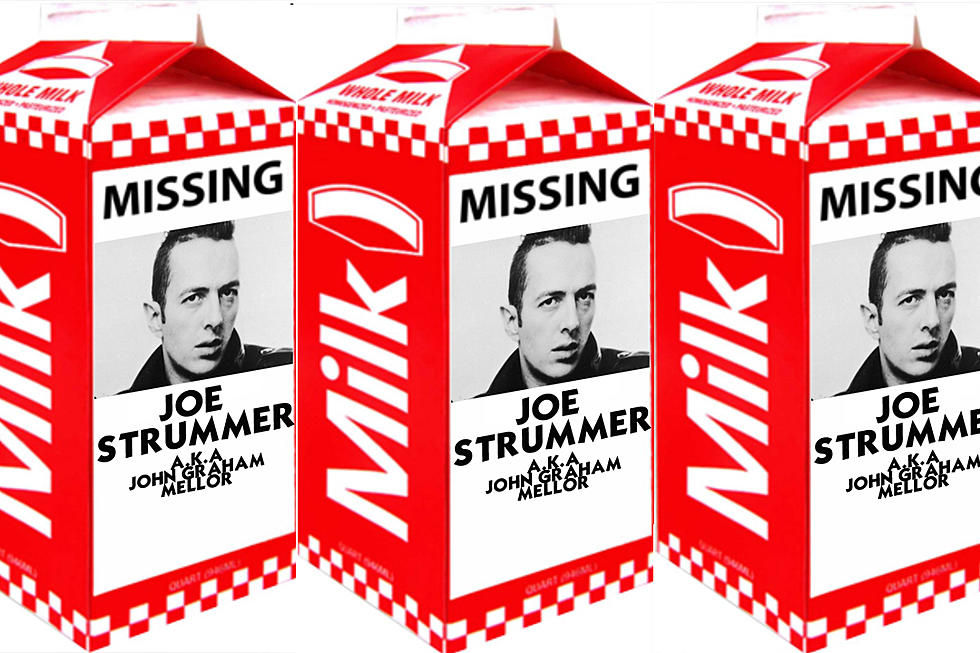That Time Joe Strummer Disappeared For Six Weeks, Later To Be Found Living Rough In Paris
- dthholland

- Oct 29, 2024
- 4 min read

In early 1982, The Clash found themselves in a turbulent period marked by internal friction and brewing tensions. Despite the impending release of a new album and a busy tour schedule spanning Europe and North America, the British rock band was anything but harmonious. The rapport between frontman Joe Strummer and guitarist Mick Jones had become strained, largely due to clashing personalities and growing egos. Meanwhile, drummer Topper Headon’s ongoing battle with drug addiction was taking a heavy toll on the group dynamic.
Under mounting pressures both onstage and behind the scenes, Strummer felt the need for an escape from the relentless demands of leading The Clash. Sensing an opportunity amid slow ticket sales for their April and May shows in the UK, manager Bernie Rhodes devised a bold publicity move. He proposed that Strummer “disappear” for a brief period, a stunt designed to stir public curiosity and drive up interest. According to the plan, Strummer would quietly slip away to Texas to spend time with his friend, fellow musician Joe Ely, allowing the media frenzy to work in the band’s favour.

Strummer’s family, who spent a lot of time moving from place to place in his early youth following his father’s career as a diplomat, resulted in the future Clash frontman himself spending chunks of his early childhood living in Cairo and Mexico City before being sent to boarding school at the age of nine.
“At the age of nine I had to say good-bye to them [his family] because they went abroad to Africa or something,” Strummer once said. “I went to boarding school and only saw them once a year after that,” he added before clarifying it was because the Government paid for his fees and also for him to see his parents at Christmas.
“I was left on my own, and went to this school where thick rich people sent their thick rich kids,” he added. It was during this time, it would seem, that Strummer developed the skill to run like the wind.

Strummer, however, had his own ideas for this “disappearance.” On April 21, 1982, after giving a phone interview to promote the upcoming Clash concerts in Scotland, the singer quietly slipped away. Instead of following the planned route, he took a boat across the English Channel and made his way to Paris without informing anyone. In the French capital, he settled in with his girlfriend, Gaby Salter, spent time at a local pub, and even began growing a beard to further his low-key escape.
“I thought it would be a good joke if I never phoned Bernie at all,” Strummer said in The Future Is Unwritten. “He was going to be thinking, 'Oh, where has Joe gone?' … And I ran the Paris Marathon, too.”
Indeed, both Strummer himself and his girlfriend, Gaby Salter, along with some friends, recounted that the Clash frontman took on the city marathon as an unregistered participant alongside Salter. Although she dropped out early, others insist that Joe completed the race despite his minimal training and regular intake of alcohol. Though some remain doubtful, it’s well-documented that Strummer ran in the London Marathon in both 1981 and 1983. Perhaps his determination truly ran that deep.

When Strummer failed to check in from his supposed Texas retreat, Rhodes and others close to The Clash grew increasingly concerned. Joe’s unexpected vanishing act was not yielding the ticket sales boost his manager had envisioned. On the contrary, fans were even more hesitant to buy tickets after news of Strummer’s disappearance surfaced. The NME began running updates on his whereabouts, encouraging fans to send tips to the band’s offices. One by one, scheduled concerts were cancelled.
Soon, the entire UK tour was postponed, even as The Clash’s new album, Combat Rock, hit the shelves. Weeks slipped by.
Rumours began circulating that Strummer was in Paris, as his scruffy beard wasn’t enough to keep him from being recognised during his frequent pub outings. Eventually, Clash associate Kosmo Vinyl was dispatched to track down the elusive frontman. Working alongside a detective, Vinyl eventually located Joe’s favourite pub in Paris. When the two finally met on May 18, Vinyl reportedly greeted the unkempt Strummer with a wry “Fidel!”
Together, they returned to London just in time for the band to head to the Netherlands for their scheduled performance at the Lochem Festival. With Strummer’s disappearance making headlines, many attendees expected the Clash to cancel yet another show and didn’t stay to see the band’s closing performance. Instead, the group went onstage as planned, marking their final performance with Topper Headon on drums.
Shortly afterward, Strummer dismissed Topper from the band, citing his increasingly problematic behaviour. Reflecting on his exit, Headon speculated that Joe’s sudden disappearance was somehow tied to his firing. He believed Strummer was proving his importance to the band by withdrawing, thereby positioning himself to remove Headon from the lineup. In an interview following his reappearance, Strummer offered a different perspective on his month-long escape.
“Well… it was something I wanted to prove to myself: that I was still alive,” he later explained to NME. “It’s very much like being a robot, being in a band … rather than go barmy and go mad, I think it’s better to do what I did even for a month… I think I would have started drinking a lot on the tour, maybe. Started becoming petulant with the audience, which isn’t the sort of thing you should do…”
Following the Holland show and Topper’s departure, The Clash brought back original drummer Terry Chimes. With Chimes on drums, the band completed a series of dates in the US and Canada before fulfilling the rescheduled UK shows that summer. Buoyed by the success of Combat Rock singles like “Should I Stay or Should I Go” and “Rock the Casbah,” The Clash played some of their largest shows in the following year—though tensions within the band were slowly unravelling them from the inside.








































































































